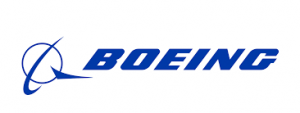 The Texas Supreme Court has changed its mind and will review a case from the Dallas Court of Appeals concerning conflict pre-emption under the federal Railway Labor Act (RLA)(45 USC § 151a).
The Texas Supreme Court has changed its mind and will review a case from the Dallas Court of Appeals concerning conflict pre-emption under the federal Railway Labor Act (RLA)(45 USC § 151a).
The Boeing Company v. Southwest Airlines Pilots Association (SWAPA) On Behalf of Itself and its Members (No. 22-0631; rehearing granted January 10, 2025) arose from litigation brought by SWAPA against Boeing alleging tortious interference, fraud, and negligence in connection with SWAPA’s 2016 collective bargaining agreement with Southwest Airlines. Over a dissent by Justice Schenk, the Dallas Court of Appeals reversed the trial court and held that the RLA did not pre-empt SWAPA’s suit against Boeing, a non-signatory to the agreement. SCOTX initially denied Boeing’s petition for review on May 31, 2024.
Boeing argues that the court of appeals got it wrong in failing to follow SCOTUS’s ruling in Hawaiian Airlines, Inc. v. Norris, 512 U.S. 246, 261 (1994), which held that “where the resolution of a state-law claim depends on an interpretation of [a] CBA, the claim is pre-empted.” The court of appeals sidestepped the ruling by holding that since Boeing was a non-signatory to the agreement, pre-emption did not apply. A second question in the appeal is whether SWAPA has standing to sue Boeing under § 252.007(b)(3), which provides that a membership association such as SWAPA may assert claims on behalf of its members only if “neither the claim asserted nor relief requested requires the participation of a member.” Boeing argues that SWAPA attempted to evade this provision by executing an assignment of its members’ claims, a move the court of appeals seemed to accept. Regardless of the assignment, Boeing asserts, a trial will still require individual SWAPA members to testify as to their (potentially divergent) interests.
The Court has not yet scheduled oral argument.










